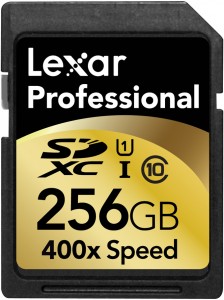Data Storage Advice
April 20, 2014 by admin
Filed under Uncategorized
Portable Memory Storage
Flash Memory drives come in many different forms. Different capacity memory cards are manufactured for different data storage applications. Hundreds of millions of Memory cards and sticks are made worldwide year on year, and many are not ideal for their use. Spending a few moments to properly assess your needs before making a purchase will permit you to make an informed decision and consequently you’ll end up with a far better solution that will fulfill its purpose.
Data Cards
There are popular format standards that are most popularly used by the vast majority of electronic device manufacturers. The most frequently used are SD cards, Micro and Mini SD cards, USB Flash drives, and CompactFlash memory cards. The 2 important issues when selecting ideal data storage, are the data storage capacity of the device and the speed of data transfer. Data storage technology develops quickly leading to an increase in storage capacity & an increase in data transfer speed.
The larger and faster the memory card, the more it will cost. Following the recent exponential surge in the use of mobiles for gaming and HD videos, mobile secure storage of massive files is now more important than ever.

Data Storage Capacities
Today, at the start of 2014, flash drives are available up to 256GB and card capacity is expected to reach 2 Terra-bytes by the end of the decade. Sticks and cards are increasingly stable, giving owners more confidence and security than was accepted a little while ago.
Many memory cards are hot ‘swappable’ meaning that they can be removed from devices without you being required to to first eject them. They are also configured to be compatible with both Apple and Microsoft, so you can easily back up your data onto your Mac or PC for later use.
CompactFlash Cards
High end digital cameras usually provide several card slots and use CompactFlash memory (normally the preferred option for commercial photography) as well as SD memory cards too. For commercial photographers, often they only have one chance to capture an event, so they have to be confident that the photos they take are safely stored on a 100% reliable card.
CF memory cards are some of the most consistently reliable portable storage cards and the most trusted. The vast majority of wedding day photographers choose a few lesser size CompactFlash cards during a wedding shoot instead of storing all of their pictures onto a single memory card. Doing this ensures added protection against failure because in the worst case scenario, if a data failure happens, they’ll just lose a single segment of their data, as opposed to losing it all.
In spite of the high level of reliability of data storage, it is a sensible precaution to keep your data safe by saving it in this way as it can save a lot of tears later. Because of their compact size, memory sticks and cards are a very practical way of holding huge amounts of data for either portability or security.
These small cards and sticks can be easily stored in a purse, wallet or pocket, or discreetly concealed to protect your intellectual property. Flash memory has two basic types, USB driven and a variety of card drives which either require a compatible flash card slot or a multi-card reader which connects to a Mac or PC via the USB socket. The electronic devices, cameras or gaming portals you own or intend to purchase will dictate which types of cards you will require.
If you are only intending to store information from your computer then a USB flash memory stick would be your ideal device. With the expense of flash drives decreasing, this is the perfect moment to invest in new large capacity sticks and cards to preserve your most valuable information.
Cloud Data Storage for Big Business
With fibre optic cabling offering faster data transfer speeds and delivery of remotely stored information, cloud server hosting has grown exponentially. For multinational business this allows for consolidation of data across many sites, buildings and locations, providing greater flexibility and usability and giving increased productivity.
Online security takes on new implications when using cloud servers as it’s possible to create weak points that can be prone to exploitation to hackers. High availability combined with high levels of security are essential. PCI CSS Level 1 (Payment Card Industry Digital Security Standard) is an essential if you are handling customers payment card information.
Continual monitoring, proactive disaster recovery strategies and core security combine to protect your critical business data & keep your servers clean and operational.
With online security breaches being big news whenever they occur, it’s never been more important to not only backup all data, but to have systems in place to prevent attacks, identify issues as they occur in real time and to have robust recovery, cleaning and restore processes ready to run.
